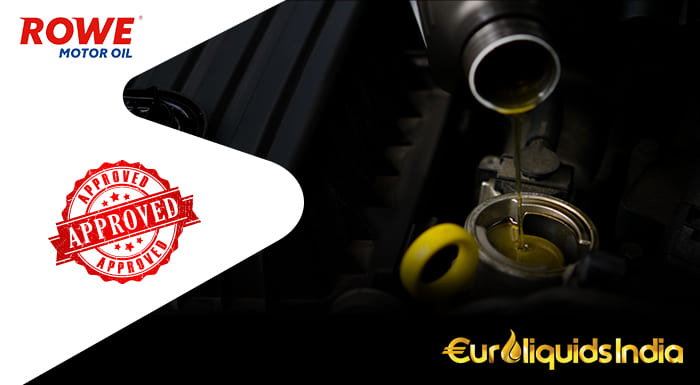Manufacturer Approval Certificates: The Importance
 11 Jun 2020
11 Jun 2020
When you are seeking to change the engine oil of your vehicle, the manufacturer's approval certificate plays a major role. Here we talk about the importance of the manufacturer's approval certificates in regards to the engine oil of your car.
1. The approval is a quality proof
A blender of lubricants can rightly claim that the lubricant meets a specification at the time it has proven to meet various key requirements. These requirements will cover all the protective properties considered to be vital by the respective manufacturer of the lubricated parts of the engine.
In case a blender wants to get one of its oils OEM approved, which is official, they have to do a lot more than pass certain benchmarks. In most of the cases, the manufacturer will set additional rules which are concerned with the formula of the oil as well as the production process of the lubricants. After this, the oils are made to go through an exhaustive testing procedure which is expensive as well. If the oil carries approval it means that it has passed these tests. This allows you the confidence and conviction that you are being offered the loftiest service level by the use of these premier lubricants.
2. Plain viscosity will not make the cut
Workshop owners who are poorly informed will often pick the engine oil for their respective cars by only looking at the viscosity as the benchmark. But unfortunately, the viscosity grade by itself will not be enough to guarantee the highly desired benefits. When manufacturers set the specifications, viscosity is just one of the requirements, they also take into account additional protective properties that are essential to the smooth running of the engine. With the help of these requirements, the manufacturers are conveying to the car owner that particular oils are preferred in the task of protecting each engine part to its optimum.
3. ACEA and API do not cover the latest technologies
If a workshop owner only takes into account the API and the ACEA oil categories for the cars that come to him, he will come across problems during his oil change routines on a daily basis. A prime example of this issue is the introduction of high-performance GDI (Gasoline Direct Injection) engines. Engines of this type will give you excellent fuel economy benefits but they have a dark side attached to them. If they are serviced with the wrong type of engine oil, they tend to misfire and also break down in totality. The only way to safeguard this new engine technology is to use engine oil that will give it specific LSPI resistance. This category takes into account the needs of LSPI sensitive GDI engines and allows the API SN Plus engine oils to be a part of each garage and serve as an indispensable addition that will guarantee the best service.
Our goal is to make it easier for each of the customers to seek out the best possible oil for the next car on the bridge, as a result of which we also have a product finder tool for your convenience. You just need to select the car and you will be given a clear report on which of the lubricants you can use for the car. This is an intelligent system and it serves its purpose by comparison of the specifications of the car with the specifications of our products; resultantly you always find the exact, right lubricant.
What does it mean when a lubricant “meets the specification”?
The Original Equipment Manufacturer or OEM, in cooperation with a supplier of additives and/or the manufacturer of the lubricant, will publish specifications for the fluid or the lubricant to be used for a certain application.
This publication will include the test limits and specific tests and is widely used by the suppliers of the additives as well as the manufacturers of the lubricant in order to blend the oil correctly. In other words, they need to determine and then use the right combination of additives and base oils in order for the final product to be specification compliant.
As a result, you get a lubricant or fluid that will “meet the specification”. However, this does not mean it is “OEM Approved” as of yet.
Lubricant is OEM approved; what does it mean?
A lubricant manufacturer can take things one notch higher. He will supply and submit a lubricant that meets the specification for the purpose of official approval by the OEM. Either the OEM or an external (but acknowledged) test laboratory will thereupon test the oil for the different characteristics as laid out in the information sheet.
After quite severe rounds of testing if the lubricant meets and complies with all the requirements the OEM will give their seal of approval to the lubricant. In fact, the validity of an OEM approval will vary from 1 to 5 years.
The value of an OEM approval is in its labeling as the “official proof “ of the quality of the lubricant. A lot of official truck and car dealerships will require OEM approved products in order to be sure that the lubricant is 100% fit for the application.
Summary
A lubricant can either be OEM approved or meet the specification.
If it meets a specification it means that the right combination of additives and base oils are used.
The manufacturer of the lubricant can thereby submit a lubricant for the official seal of approval by the OEM. The OEM approval can be considered the official proof of quality for the lubricant.
For racing engine oil or the best engine oil in India, you should visit www.euroliquids.co.in. This useful website will point out the engine oil brand in India and will help you to narrow down on the best engine oil Company in India.